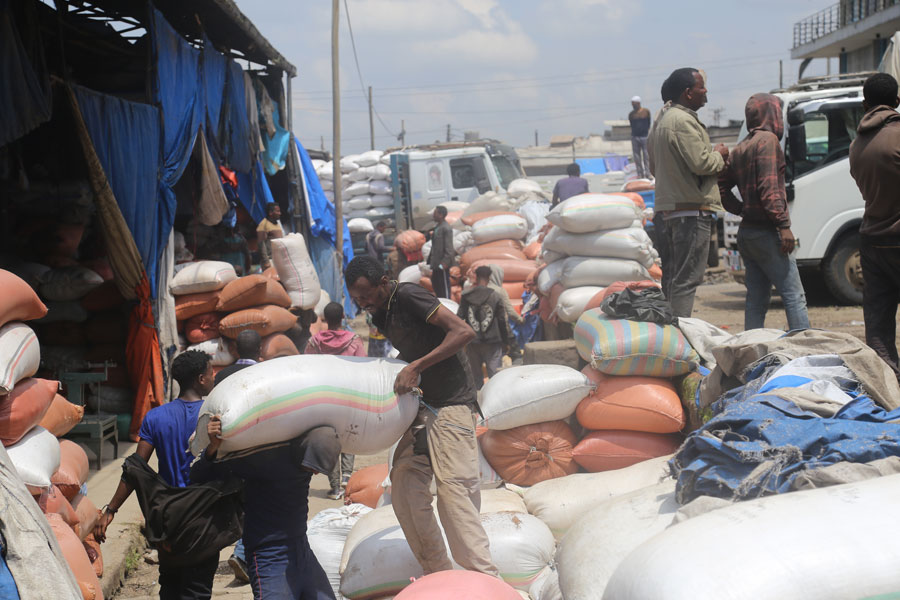
View From Arada | Apr 15,2023
Sunday has become a sought-after market day for residents of Addis Abeba. If they venture into the areas of Mexico, Megenagna, Qality, Jemo or Piassa, they are bound to run into lively marketplaces where food staples can be bought at much lower prices than offered at regular retailers. They could buy quantities of potato for half the price, or onions for two-thirds and a bag of spaghetti 20pc cheaper than other stores. This is no small respite for consumers in an economy where annual food inflation hit 40.7pc last month.
There are 148 cooperatives in the capital, with many selling at these markets owing to the joint initiative by Addis Abeba’s Trade Bureau and Cooperative Agency. Consumers have responded with enthusiasm and do not seem to miss the intermediaries that connect them to the producers. Supply chain problems are one of the factors driving prices up for consumers, an issue the city administration is attempting to address. City officials hope to continue the markets, encouraged by the excitement from both consumers and traders. They want to add 10 more locations to the list and make grocery shopping a Sunday ritual. They plan to set them up in permanent places where the markets can be more accessible.
Economists that closely follow the market see the initiative as an encouraging start to stabilise prices. But they concede inflation is much more an issue of productivity than caused by dysfunctional supply chains. The more produce available, the less likely they are to be manipulated by intermediaries, they argue. Relieved consumers, meanwhile, want city officials to continue installing more of the weekend markets.
You can read the full story here
PUBLISHED ON
Nov 27,2021 [ VOL
22 , NO
1126]

View From Arada | Apr 15,2023

Commentaries | Jul 24,2021

Fortune News | Aug 19,2023

Commentaries | Apr 30,2021

Commentaries | Feb 12,2022

Commentaries | Apr 17,2021

Radar | May 18,2019

Fortune News | Nov 27,2022

Editorial | Nov 25,2023

Fortune News | Feb 01,2020

Dec 22 , 2024 . By TIZITA SHEWAFERAW
Charged with transforming colossal state-owned enterprises into modern and competitiv...

Aug 18 , 2024 . By AKSAH ITALO
Although predictable Yonas Zerihun's job in the ride-hailing service is not immune to...

Jul 28 , 2024 . By TIZITA SHEWAFERAW
Unhabitual, perhaps too many, Samuel Gebreyohannes, 38, used to occasionally enjoy a couple of beers at breakfast. However, he recently swit...

Jul 13 , 2024 . By AKSAH ITALO
Investors who rely on tractors, trucks, and field vehicles for commuting, transporting commodities, and f...

Sep 13 , 2025
At its launch in Nairobi two years ago, the Africa Climate Summit was billed as the f...

Sep 6 , 2025
The dawn of a new year is more than a simple turning of the calendar. It is a moment...

Aug 30 , 2025
For Germans, Otto von Bismarck is first remembered as the architect of a unified nati...

Aug 23 , 2025
Banks have a new obsession. After decades chasing deposits and, more recently, digita...